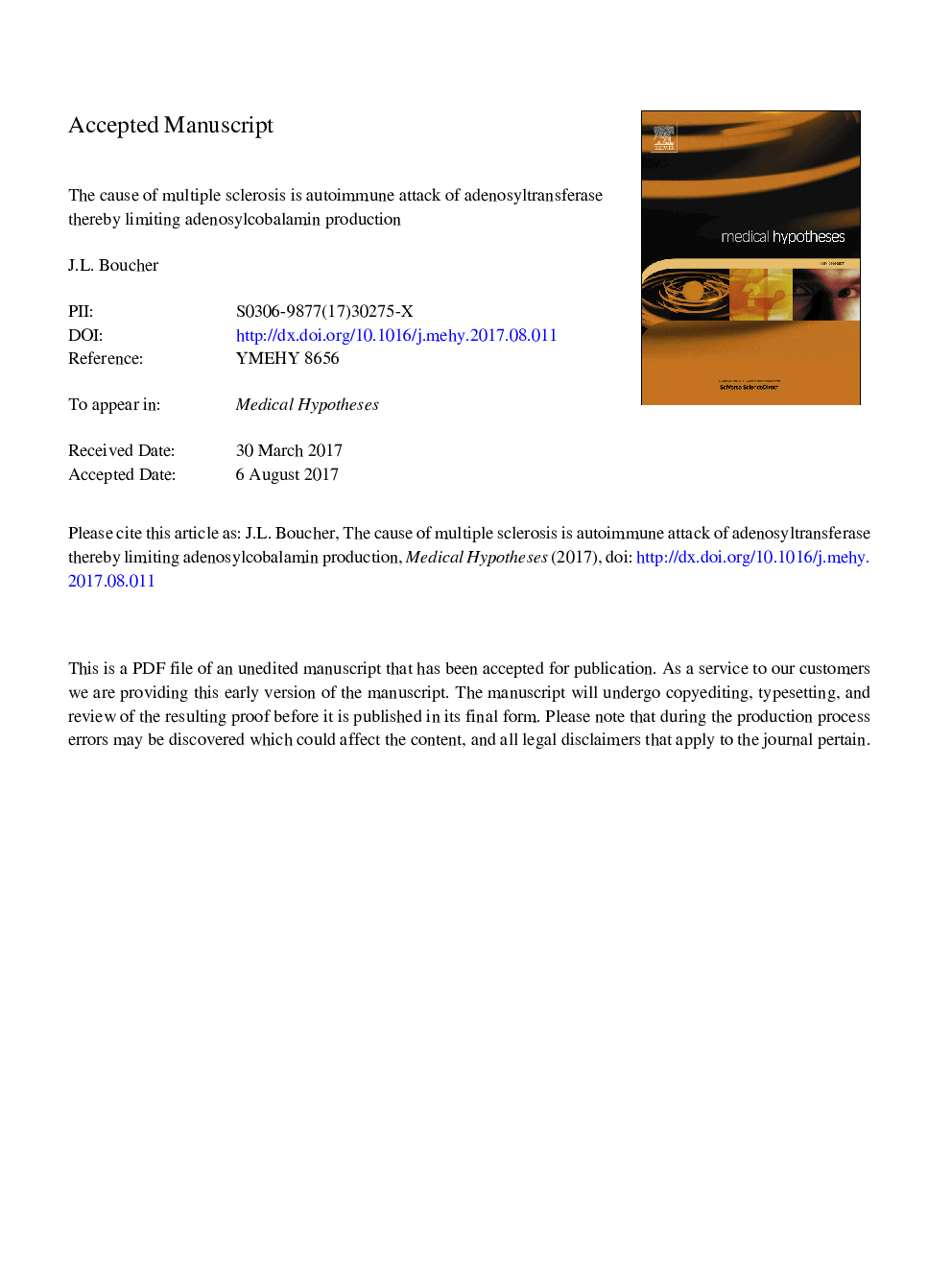| کد مقاله | کد نشریه | سال انتشار | مقاله انگلیسی | نسخه تمام متن |
|---|---|---|---|---|
| 8516094 | 1556536 | 2017 | 41 صفحه PDF | دانلود رایگان |
عنوان انگلیسی مقاله ISI
The cause of multiple sclerosis is autoimmune attack of adenosyltransferase thereby limiting adenosylcobalamin production
ترجمه فارسی عنوان
علت مولتیپل اسکلروزیس حمله اتوایمیون آدنوزیلت ترانسفراز است و بنابراین تولید آدنوزیلکوبالامین را محدود می کند
دانلود مقاله + سفارش ترجمه
دانلود مقاله ISI انگلیسی
رایگان برای ایرانیان
موضوعات مرتبط
علوم زیستی و بیوفناوری
بیوشیمی، ژنتیک و زیست شناسی مولکولی
زیست شناسی تکاملی
چکیده انگلیسی
The pathogenesis of multiple sclerosis (MS) begins with an infection by a bacterium from the class of bacteria that produce and utilize adenosylcobalamin (AdoCbl) and possess an adenosyl transferase enzyme (ATR); these bacteria are the exogenous antigens that cause MS. Human ATR is homologous to bacterial ATR and B cells produce anti-ATR antibodies as an autoimmune response thereby reducing the concentration of ATR and thus limiting production of AdoCbl, one of the two bioactive forms of vitamin B12. The next step in MS pathogenesis is a period of subclinical AdoCbl deficiency over a period of many years resulting in production of odd-carbon-number fatty acids that are incorporated into myelin rendering it antigenic. The next step in MS pathogenesis is breach of the blood brain barrier thereby introducing leukocytes into the brain's blood supply resulting in T cell attack of antigenic myelin. All epidemiological clusters are regions wherein the major agricultural products are legumes that produce a high percentage of odd-carbon-number fatty acids and contain symbiotic rhizobia type bacteria in root nodules and in the soil. This novel etiological hypothesis is called “multiple sclerosis due to adenosylcobalamin deficiency” (MS-AdoCbl). Creation of realistic animal models based on the MS-AdoCbl hypothesis is presented. Methods for testing predictions made by the MS-AdoCbl hypothesis are described.
ناشر
Database: Elsevier - ScienceDirect (ساینس دایرکت)
Journal: Medical Hypotheses - Volume 109, November 2017, Pages 29-37
Journal: Medical Hypotheses - Volume 109, November 2017, Pages 29-37
نویسندگان
J.L. Boucher,
